Filmmaker and York contract faculty member Mark Terry’s Youth Climate Report, an interactive documentary film project, is featured in Sweden’s Syre magazine
Mark Terry
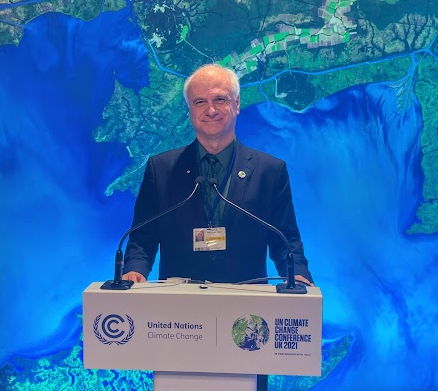
Approved tag

Filmmaker and York contract faculty member Mark Terry’s Youth Climate Report, an interactive documentary film project, is featured in Sweden’s Syre magazine
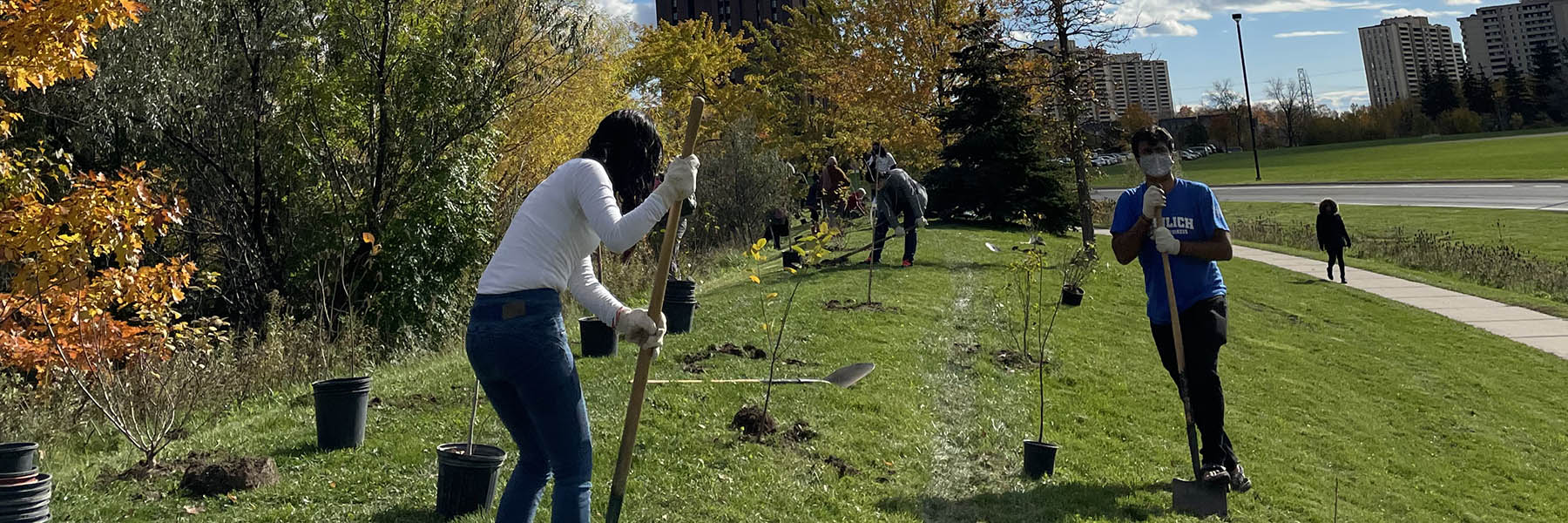

On Wednesday, Oct. 27, on the lower part of the Glendon Campus, the first tree-planting event took place; the second event was held on Wednesday, Nov. 3, on the grounds that surround the Stong Pond.
The trees were purchased through a tree-planting grant received by Regenesis@York from the City of Toronto. The grant was provided to purchase native trees to advance the city’s strategic priorities to invest in people and neighbourhoods, tackle climate change and build resilience.
Participants worked together, creating a greener campus while helping to restore ecosystems to aid in the mitigation of climate change. As trees grow, they help mitigate the effects of climate change by removing carbon dioxide from the air, storing that carbon within the trees and soil, and releasing oxygen into the atmosphere.
The tree-planting event provided an opportunity for community members to enjoy the outdoors, connect with nature, and benefit both mentally and physically, all while advancing York’s efforts to advance the United Nations Sustainable Development Goals (SDGs), specifically Climate Action (SDG 13) and Life on Land (SDG 15).
The event was oversubscribed, with an overwhelming number of registrants. Participant spaces were limited due to the current COVID-19 health and safety restrictions and protocols in place. More events of this kind will be added in the future by the Office of Sustainability so that community members can enjoy the beauty of the University’s Keele and Glendon campuses. Each event advances the University’s progress towards meeting its goal of carbon neutrality on or before 2049.

Focused on the United Nations (UN) Sustainable Development Goals (SDGs), UNHack offers an interesting and empowering experiential learning activity. This year, UNHack is organized by the Bergeron Entrepreneurs in Science and Technology (BEST) in conjunction with the York University Sustainability Office and its SDG Student Hub initiative. Joining UNHack as new partners are leaders from the School of Nursing’s Nursing Student Tutoring, Ambassadorship and Mentorship Programs.
UNHack organizers are calling on faculty across York University to direct their students to this powerful virtual experiential education event. UNHack is different from most hackathons in two ways: the “UN” comes from the United Nations, and the “hack” from hackathon, which focuses attention on local problems that are linked to the the UN’s 17 SDGs. Addressing global problems at the local level helps students recognize that they can have an impact and make a difference to critical problems that the world needs to address. UNHack is not a traditional hackathon focused on coding; this event promotes a full range of technical and creative solutions aligned around identifying the critical problem and then developing creative solutions to that problem (not the ability to develop code or software). Final prototypes of solutions are informed by the diverse minds and lenses applied to the issue, resulting in creative outputs that could encompass drawing, creating a model or other visuals, rather than technology.
Challenges in UNHack can either be developed by students or selected from those offered by York University or industry partners. In previous years, participants in UNHack have developed a system to facilitate reusable food containers, a campus-based rideshare platform, apps to help improve mental health and innovative ways to reduce paper use in posters on campus. Many of these solutions are currently in the early stages of being deployed at York University.
To learn more, visit the UNHack web page or contact Maedeh Sedaghat, BEST program officer, by email at maedeh.sedaghat@lassonde.yorku.ca .

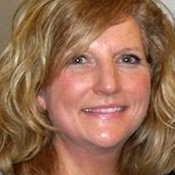
“We are thrilled to announce the overwhelming response from faculty who are infusing the SDGs into their classrooms/courses, as well as others who want to learn more about how they might also,” said van Daalen-Smith, associate professor, School of Nursing in the Faculty of Health, and associate professor, School of Gender, Sexuality and Women’s Studies/Children, Childhood & Youth Studies Program in the Faculty of Liberal Arts & Professional Studies.
“From dance to kinesiology, psychology, Earth science, fine art, gender studies – and the marvellous list goes on – York faculty are seeing the SDGs’ relevance to the real-world issues they want their students to consider through a myriad of rich lenses,” said van Daalen-Smith.
In response, van Daalen-Smith has established a community of practice, which will hold its first meeting on Friday, Nov. 26 from 9:30 to 11 a.m. over Zoom. Co-hosted by the Teaching Commons and the Provostial Fellows program, the meeting will provide an opportunity for those attending to see examples of how faculty across York’s campuses are embedding the SDGs into their classrooms. It will also serve to initiate discussions about how an SDG-focused community of practice might look at York University. The discussions will be supported by Michael Johnny, manager of knowledge mobilization with Innovation York.
Faculty interested in attending the meeting should register here. Once registered, a Zoom link will be provided.
To learn more, contact van Daalen-Smith by email at cvandaal@yorku.ca.

Muon is a certified arborist, horticulturist, master gardener of Ontario and the team leader of Grounds Maintenance at the Glendon Campus. In 2018, he had an idea that would help incorporate more sustainable practices at Glendon’s community gardens. Instead of letting annual flowers wither away, together with his team he decided to recycle, propagate and nurture seedlings to be replanted the following year. Not only would this help reduce costs, but it would also lay the groundwork for an initiative that promotes environmental stewardship.
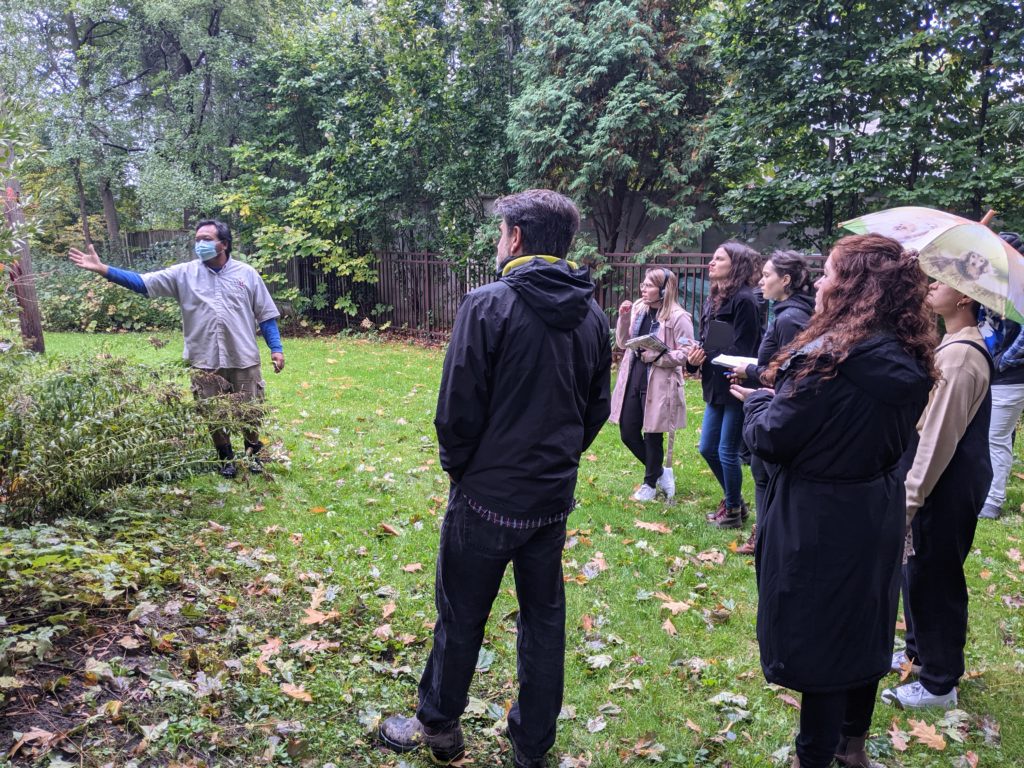
After successfully piloting the project in 2019, more than 1,000 plants were nurtured and ready to be planted at Glendon Campus by February 2021. By making a simple yet transformative change, the team’s vision of blooming gardens with flourishing flowers and edible plants came to life. Today, the gardens at Glendon are more than just thriving plants; they are an opportunity for students, faculty, and staff to connect with the community and environment.
The grounds team is dedicated to expanding their impact, with an emphasis on increasing educational and learning opportunities. Muon says that gardening is beneficial not only for the environment but also for the community, as it promotes nutrition, physical activity and team building.
On Thursday, Oct. 21, Muon led a tour of the Glendon Campus to introduce attendees to the various plants growing on the grounds. The event nurtured a sense of community for participants and marked the first official tour of its kind for Glendon. During the tour, Muon shared his expansive knowledge of plant life on campus – specifically, edible plants like spruce, serviceberry and dandelion. The tour was initially designed for each of the four seasons, but there are plans to conduct more tours if community demand increases.
A collaborative effort between the Grounds Maintenance team, students and Glendon leadership helped to make the tour a success. Duncan Appleton, technical co-ordinator and course director of the Drama and Creative Arts program, worked with students from his course to help with the construction of planters at the garden. Maureen Plantec, Kariane Saint-Gelais and Amanda Murray – all students in the Master of Conference Interpreting program – performed research and interpreted the tour, with technical support from Aurélien Muller. Geneviève Quintin, associate director of the Glendon Centre for Cognitive Health, organized publicity for the tour to increase awareness of the opportunity. Muon’s colleague Sean James acted as a support system for the garden and tour. All of the efforts were supported and encouraged by Glendon Superintendent John Ljubicic.
This innovative team intends to move forward with their vision; to employ best practices for the next season. Muon said that the long-term goal is to enhance engagement with students, staff, and faculty members to encourage “mutual respect between humans and nature.”
The University community and Grounds Maintenance team at Glendon demonstrate how one small act can make a significant impact towards building positive change for a better, more sustainable tomorrow.

Brent Brodie, senior procurement analyst and project lead, Procurement Services, discusses York’s Social Procurement Policy and how procurement at the University aligns with sustainability

York University’s Fair Trade Campus Week featured a combination of virtual and in-person events, including a virtual panel discussion focused on the theme “Fair Trade, Sustainability and Universities.” Panellists were Sean McHugh, executive director, Canadian Fair Trade Network; Madison Hopper, marketing manager, Equifruit; Pippa Rogers, director of communications, Fairtrade Canada, and Mark McLaughlin, chief commercial services officer, Simon Fraser University. Joining the panellists from York University were Tom Watt, director, food services, Ancillary Services Department and Chad Saunders, director, bookstores, print and mailing services, Ancillary Services Department. The panel was hosted by students, faculty and staff and organized by Faculty of Liberal Arts & Professional Studies Associate Professor John Simoulidis.
Panellists shared their experiences, stories and successes working within the fair trade movement. The theme throughout the discussion was power in numbers – when groups of people and organizations share a common goal, they can exert influence to create positive change and universities can be a big part of that change. In Canada, the population of university campuses is close to three million, this accounts for almost seven per cent of the overall Canadian population. This gives campuses tremendous leverage through its purchasing power by demanding that fair trade certified products are included in its food services contracts.

Attendees were encouraged to participate by posing questions to the panel and by taking part in a fair trade trivia quiz. Giulia Rosano from the Faculty of Environmental and Urban Change was the winner of the trivia quiz and received a fair trade gift prize.
Fair trade products are available on York University’s campuses. Fair trade apparel is available at the University’s Bookstore, in partnership with Green Campus Co-Op. Food Services’ partner Aramark offers fair trade coffee, teas and bananas.
To learn more about fair trade apparel, visit the Bookstore website. York students can get involved in the fair trade movement on campus by signing up using this form.
To learn more about the Fair Trade Campus program, fair trade products or about how to get involved in advancing an economy that is fair and sustainable, visit the Fair Trade Campus website or the Fairtrade Canada website.

The University partnered with the City of Toronto to install three Bike Share stations on the Keele and Glendon campuses. Located on the north and south sides of the York University Subway Station on the Keele Campus, and inside the main entrance of the Glendon Campus, these bikes provide an additional and sustainable mode of transportation while further enhancing York’s relationship with the City of Toronto. In addition, there are also Bike Share stations located on Sentinel Road at The Pond Road and at Murray Ross Parkway.
The program provides community members with 24-7 convenient access to bikes and a variety of payment options. Users of the Bike Share program can pay for use of the bikes on a per-ride basis at $3.25 for 30 minutes, purchase multi-day passes or, as members of the York community, take advantage of one of the two annual corporate membership programs. Members benefit from the corporate plan by getting 20 per cent off the regular membership price. Bikes rented at a York station can be returned either on campus or at any of the 625 Bike Share stations across Toronto.
Working in Partnership is one of the six priorities for action identified in the University Academic Plan 2020-25, helping York University to gain vital insights toward creating positive change for its students, campuses and broader communities.
The Bike Share program supports York’s efforts to advance the United Nations Sustainable Development Goal 11 – Make Cities and Human Settlements Inclusive, Safe, Resilient and Sustainable. In addition, this program helps to uphold the University’s commitment to sustainable transportation and reduce carbon emissions on York’s campuses as the University works toward its goal of carbon neutrality on or before 2049.
To learn more about Bike Share Toronto at York, visit the University’s Bike Share website.

La version française suit la version anglaise.
Dear colleagues,
York University is pleased to announce a partnership with Bike Share Toronto. York is the first post-secondary institution in the GTA to bring Bike Share Toronto onto its campuses. This exciting partnership brings a healthy, fun and affordable way to get around the campuses and the city.
The University partnered with the City of Toronto to install three Bike Share stations on the Keele and Glendon campuses. Located on the north and south sides of the York University Subway Station on the Keele Campus, and inside the main entrance of the Glendon Campus, these bikes provide an additional and sustainable mode of transportation while further enhancing York’s relationship with the City of Toronto. In addition, there are also Bike Share stations located on Sentinel Road at The Pond Road and at Murray Ross Parkway.
The program provides community members with 24-7 convenient access to bikes and a variety of payment options. Users of the Bike Share program can pay for use of the bikes on a per-ride basis at $3.25 for 30 minutes, purchase multi-day passes or, as members of the York community, take advantage of one of two annual corporate membership programs. Members benefit from the corporate plan by getting 20 per cent off the regular membership price. Bikes rented at a York station can be returned either on campus or at any of the 625 Bike Share stations across Toronto.
The University understands and embraces partnerships – Working in Partnership is one of the six priorities for action identified in the University Academic Plan 2020-25, helping the University to gain vital insights toward creating positive change for our students, our campuses and our broader communities.
The Bike Share program supports York’s efforts to advance the United Nations Sustainable Development Goal 11 – Make Cities and Human Settlements Inclusive, Safe, Resilient and Sustainable. In addition, this program helps to uphold the University’s commitment to sustainable transportation and reduce carbon emissions on York’s campuses, as the University works toward its goal of carbon neutrality on or before 2049.
To learn more about Bike Share Toronto at York, please visit the University’s Bike Share website.
Thank you and happy riding,
Anthony Barbisan
Executive Director, Ancillary Services Department
Division of Finance and Administration
Nicole Arsenault
Program Director, Sustainability
Division of Finance and Administration
Cher collègues,
L’Université York est heureuse d’annoncer un partenariat avec Bike Share Toronto. York est le premier établissement postsecondaire de la région du Grand Toronto à accueillir Bike Share Toronto sur ses campus. Ce partenariat offre un moyen sain, amusant et abordable de se déplacer sur les campus et dans la ville.
L’Université s’est associée à la Ville de Toronto pour installer trois stations Bike Share sur les campus Keele et Glendon. Situées sur les côtés nord et sud de la station de métro York University sur le campus Keele et près de l’entrée principale du campus Glendon, ces stations de vélos offrent un mode de transport supplémentaire et durable tout en renforçant la relation entre l’Université York et la Ville de Toronto. D’autres stations Bike Share sont situées sur Sentinel Road (à la hauteur de The Pond Road) et sur Murray Ross Parkway.
Le programme Bike Share offre aux membres de la communauté un accès pratique aux vélos en tout temps, ainsi que diverses options de paiement. Les utilisateurs du programme peuvent payer à l’usage (3,25 $ pour 30 minutes), acheter des abonnements de plusieurs jours ou, en tant que membres de la communauté de York, profiter de l’un des deux plans d’abonnement collectif. Les membres du plan d’abonnement collectif obtiennent une réduction de 20 % par rapport au prix normal. Les vélos loués à York peuvent être rendus soit sur les campus, soit à l’une des 625 stations de Toronto.
L’Université reconnaît l’importance de tels partenariats et les encourage. Travailler en partenariat est d’ailleurs l’une des six priorités d’intervention inscrites au Plan académique de l’Université 2020-2025, ce qui lui permet d’acquérir des connaissances essentielles afin de créer des changements positifs pour ses étudiants et étudiantes, ses campus et ses communautés.
Le programme Bike Share soutient les efforts de York pour faire avancer l’objectif 11 de développement durable des Nations Unies : Faire en sorte que les villes et les établissements humains soient ouverts à tous, sûrs, résilients et durables. De plus, ce programme contribue au respect de l’engagement de York envers le transport durable et la réduction des émissions de carbone sur les campus, alors que l’Université s’efforce d’atteindre son objectif de neutralité carbone en 2049 ou plus tôt.
Pour en savoir plus sur Bike Share Toronto à York, veuillez visiter notre site Web.
Merci et bon vélo!
Anthony Barbisan
Directeur principal
Département des services auxiliaires
Division des finances et de l’administration
Nicole Arsenault
Directrice des programmes de durabilité
Division des finances et de l’administration
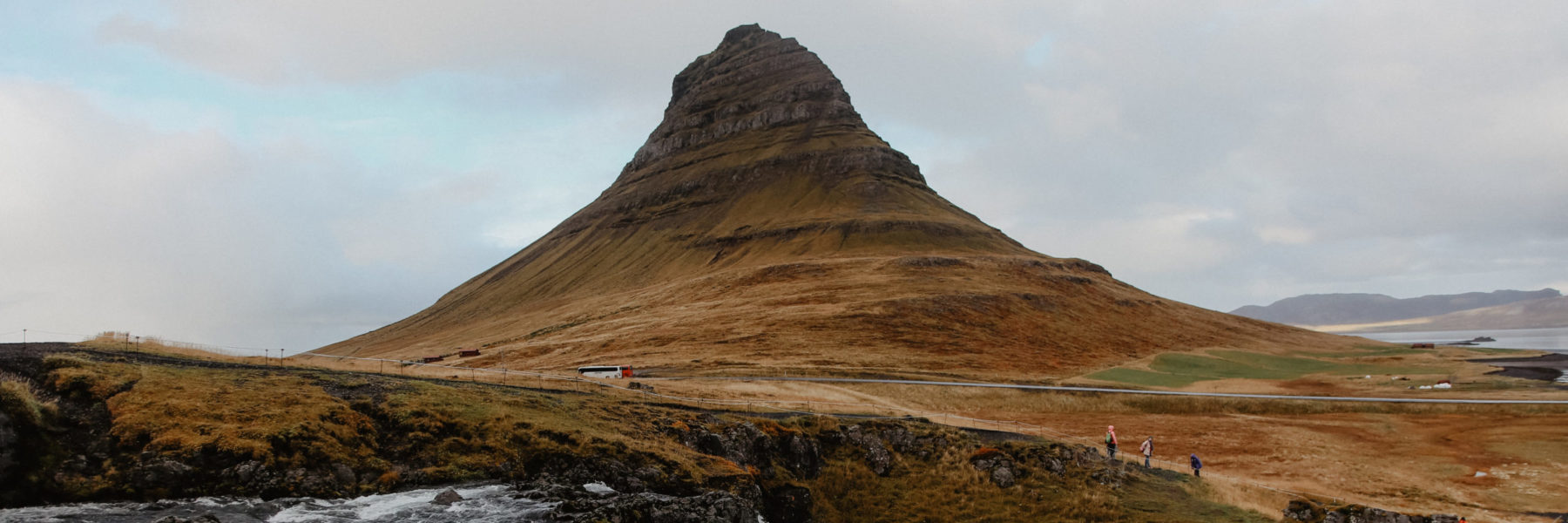
The United Nations Framework Convention on Climate Change (UNFCCC) has selected The Changing Face of Iceland, the third instalment in Terry’s trilogy of polar documentaries focusing on the impacts climate change on the island nation of Iceland, as an official Action for Climate Empowerment project under Article 6 of the Paris Agreement. As such, it is scheduled for a screening at a two-hour event at COP26.


Terry – a Fellow of the Royal Society of Canada, an associate to the UNESCO Chair in Reorienting Education towards Sustainability at York and a contract faculty member in York’s Faculty of Environmental and Urban Change – will introduce his film at the event and take questions after the screening.
The Changing Face of Iceland is a production of the Youth Climate Report, a partner program of the UNFCCC since 2011. The documentary examines the toll climate change has taken on Iceland’s glaciers, land, flora, fauna, fish, economy and people. The film also includes exclusive footage of the recent eruptions of Fagradalsfjall, an active volcano only 40 kilometres from Iceland’s capital, Reykjavík.
The two previous films in the trilogy, The Antarctica Challenge: A Global Warning (2009) and The Polar Explorer (2011), have been aired on CBC in Canada and released in the U.S. by PBS, as well as screened at past United Nations climate summits.
For further information, contact Terry by email at ycrtv1@gmail.com.